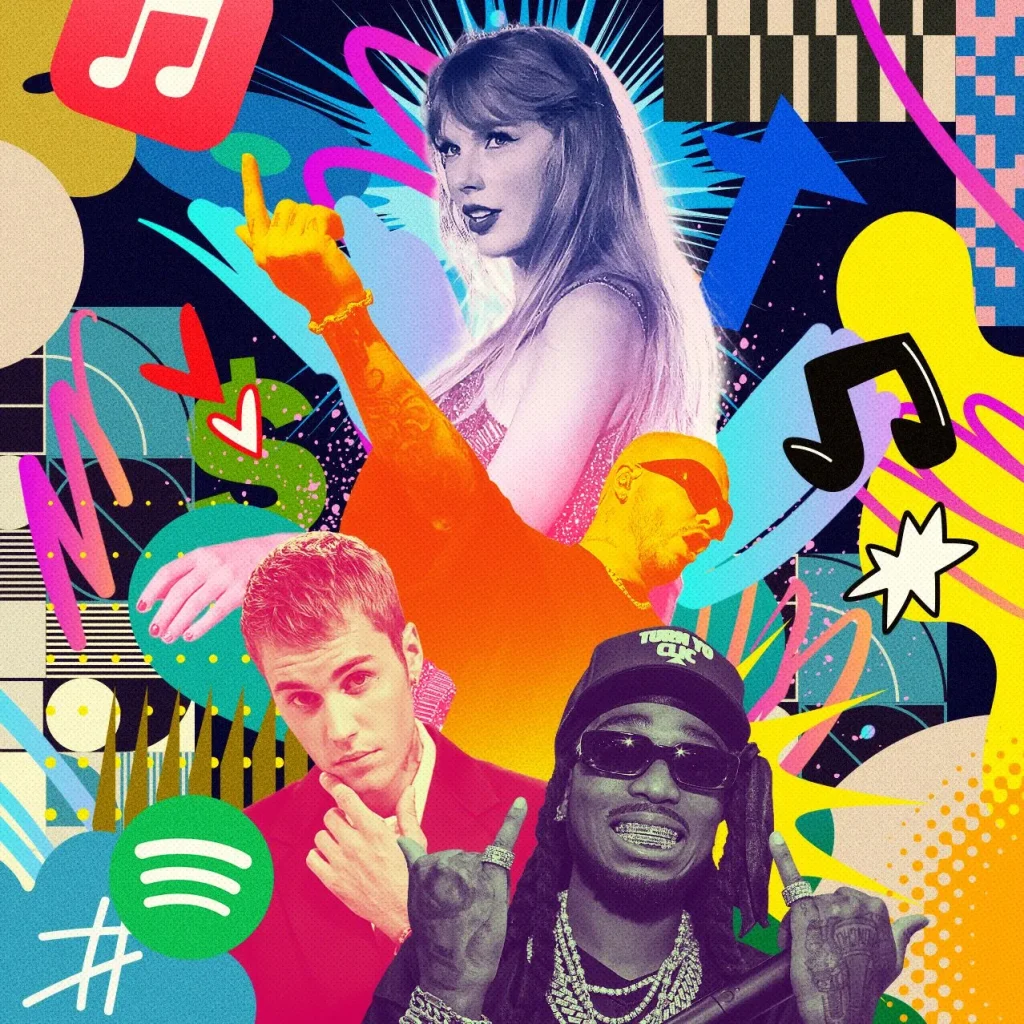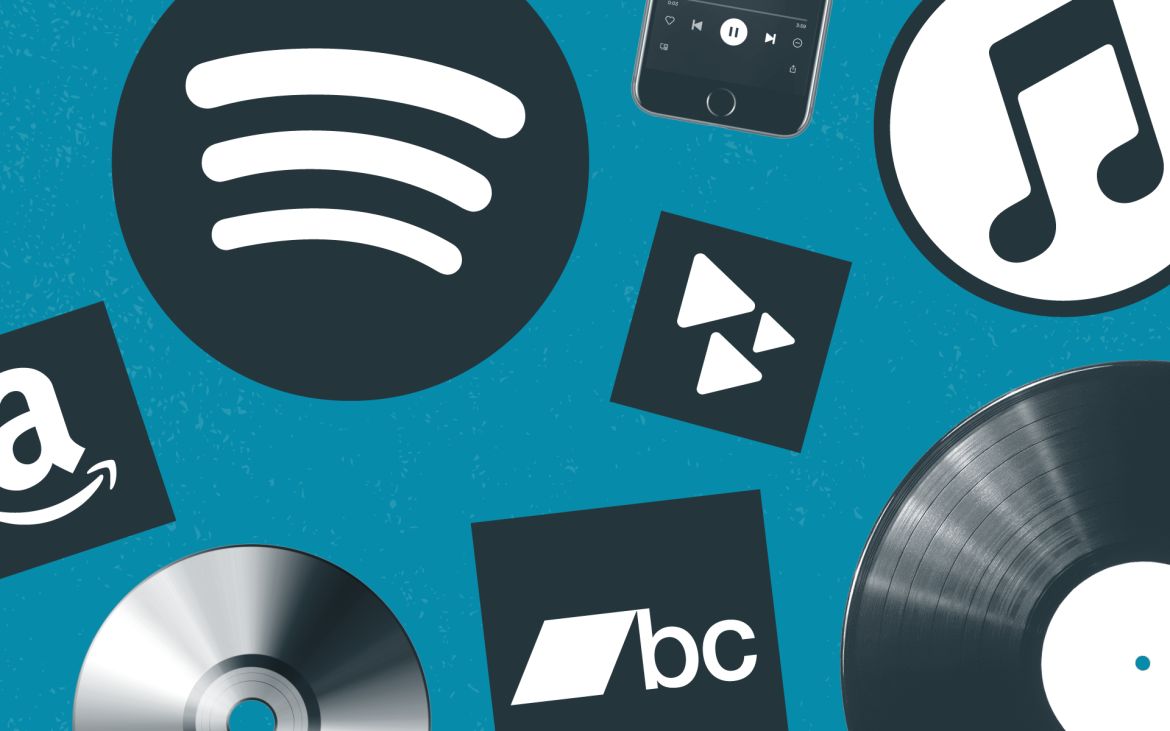Digital music platforms have revolutionized the music industry by changing how we discover, listen to, and share music. From streaming services to digital downloads, these platforms have made music more accessible and personalized than ever before. This article explores the various aspects of digital music platforms, including their impact, benefits, and challenges.

Types of Digital Music Platforms
- Streaming Services:
- Overview: Streaming services like Spotify, Apple Music, Amazon Music, and Tidal offer vast libraries of songs and albums that users can access on-demand. These platforms typically operate on a subscription model, providing ad-free experiences and additional features such as offline listening.
- Personalization: Advanced algorithms analyze listening habits to recommend music tailored to individual tastes, creating personalized playlists and discovering new artists.
- Digital Downloads:
- Historical Context: Platforms like iTunes and Bandcamp have played a significant role in the transition from physical media to digital ownership. Users can purchase and download individual tracks or complete albums, allowing them to build personal music libraries.
- Ownership: Unlike streaming, digital downloads offer users permanent access to their purchased music, even if they cancel their subscription or the platform changes.
- Music Discovery Platforms:
- Recommendation Engines: Services like Pandora and YouTube Music use recommendation algorithms to introduce users to new music based on their listening history and preferences.
- Social Features: Many platforms integrate social elements, enabling users to share playlists, follow friends, and explore trending music within their networks.
- Artist Platforms:
- Direct Distribution: Platforms like SoundCloud and Bandcamp empower artists to upload and distribute their music directly to fans. This model bypasses traditional record labels, giving artists more control over their music and revenue.
- Monetization: These platforms often provide various monetization options, including sales, streaming royalties, and fan donations.
- Live Streaming and Virtual Concerts:
- Virtual Performances: With the rise of platforms like Twitch and YouTube Live, artists can host live virtual concerts and performances, reaching audiences worldwide without geographical limitations.
- Engagement: Virtual concerts offer interactive experiences where fans can participate in real-time, providing new revenue streams through ticket sales and digital tips.
- Music Production Tools:
- Cloud-Based DAWs: Digital Audio Workstations (DAWs) like Soundtrap and BandLab offer cloud-based music production tools, allowing artists to create, edit, and collaborate on music projects from anywhere.
- Accessibility: These tools democratize music production, making it accessible to aspiring artists who might not have access to traditional studio equipment.
- Music Data and Analytics:
- Audience Insights: Digital music platforms provide valuable data on listener behavior, track performance, and audience demographics. Artists and labels use this data to make informed decisions about marketing, touring, and future releases.
- Trend Analysis: Analyzing streaming data helps identify emerging trends and popular genres, guiding industry decisions and shaping the music landscape.

Benefits of Digital Music Platforms
- Accessibility and Convenience: Digital music platforms make it easy for users to access a vast array of music from anywhere with an internet connection. This convenience has led to a dramatic increase in music consumption.
- Personalization: Advanced recommendation algorithms tailor music discovery to individual tastes, enhancing user satisfaction and engagement.
- Global Reach: Artists can reach international audiences without the need for traditional distribution channels. This global reach expands their fan base and opens up new markets.
- Cost-Effectiveness: Streaming services often offer affordable subscription options, making it easier for users to access a broad range of music without purchasing individual tracks.
- Support for Independent Artists: Platforms like Bandcamp and SoundCloud provide independent artists with tools to distribute their music and connect with fans directly, fostering a more diverse music ecosystem.
- Innovation in Music Creation: Cloud-based DAWs and music production tools enable artists to experiment with new sounds and techniques, leading to innovative and genre-blending music.
- Data-Driven Insights: Analytics tools offer valuable insights into audience preferences and market trends, helping artists and industry professionals make informed decisions.
Challenges and Considerations
- Revenue Distribution: While digital platforms provide exposure, revenue distribution can be uneven. Artists often receive a small fraction of streaming royalties, which can be a concern for those relying solely on digital income.
- Market Saturation: The ease of access to music creation and distribution has led to an oversaturation of content, making it challenging for new and emerging artists to stand out.
- Digital Rights Management (DRM): DRM practices can restrict how users access and use their purchased music, leading to dissatisfaction among consumers who seek more flexibility.
- Privacy Concerns: The collection of user data for personalized recommendations and advertising raises privacy concerns, with some users wary of how their data is used.
- Technical Issues: Streaming services can face technical issues such as outages, buffering, and quality concerns, impacting the overall user experience.
- Evolving Trends: The rapid evolution of technology and user preferences means that digital music platforms must continuously innovate to stay relevant and competitive.
- Impact on Physical Media: The decline in physical media sales, such as CDs and vinyl, poses challenges for collectors and music stores that rely on traditional formats.

Conclusion
Digital music platforms have fundamentally transformed the music industry by enhancing accessibility, personalization, and global reach. They offer numerous benefits to both consumers and artists, but also present challenges that must be addressed. As technology continues to evolve, digital music platforms will play a crucial role in shaping the future of music consumption, production, and distribution. The ongoing innovation in this space promises to create new opportunities and experiences for music lovers and creators alike.


